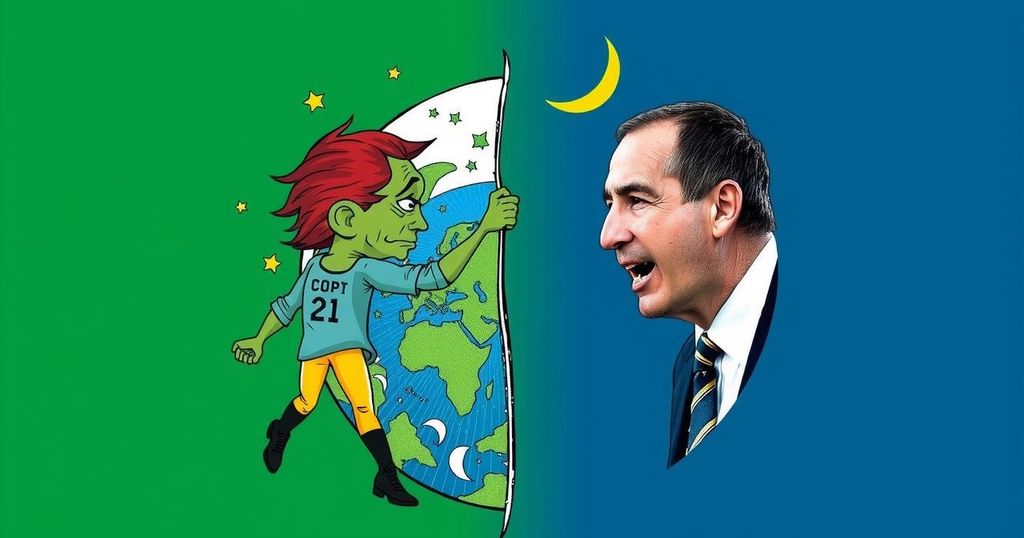At COP29, a $300 billion climate finance deal was agreed upon, but many developing nations criticized it as insufficient given the $1.3 trillion needed annually. Critics label the funding deal as inadequate and potentially detrimental, favoring loans over necessary grants for adaptation. Discussions for further financial frameworks will continue in upcoming meetings, with focus shifting to tangible commitments for climate resilience.
The recent COP29 climate change summit in Azerbaijan concluded with a $300 billion annual finance package aimed at supporting developing nations in addressing climate impacts, a figure perceived by many as grossly inadequate. While the Global North countries committed to this amount until 2035, it only represents a fraction of the estimated $1.3 trillion necessary each year. Criticism emerged from representatives of developing nations, who decried the agreement as insufficient and labeled it as potentially perpetuating economic inequalities through reliance on loans instead of grants. Although some Western leaders praised it as ambitious, suggested improvements were emphasized regarding leadership and transparency in climate action. The tension throughout the negotiations highlighted the ongoing controversy over climate finance commitments, especially in light of urgent climate-related crises affecting vulnerable nations. Looking ahead, countries prepare for future discussions to refine financial contributions and establish more concrete frameworks for climate adaptation initiatives.
The COP29 was convened to address ongoing global climate change challenges, particularly focusing on financing frameworks that would aid developing nations adversely affected by climate change. The $300 billion pledged, representing an increase from previous agreements, faces scrutiny as it falls short of the recognized needs of $1.3 trillion per year for emission reductions and resilience-building. The apprehension surrounding the nature of funding—whether in the form of grants or loans—remains a pivotal concern for many delegations, particularly those from the Global South who argue for more equitable solutions.
The outcome of COP29 continues to stir discontent among developing nations, highlighting the persistent gap between pledges and actual climate finance delivery. The $300 billion financing target, though presented as an increase, is critiqued for lacking the scale required to effectively combat climate impacts. As nations move toward future climate conferences, the need for concrete action and commitment to fulfilling financial promises becomes increasingly urgent, particularly in the face of extreme weather events exacerbated by global warming.
Original Source: www.voanews.com






